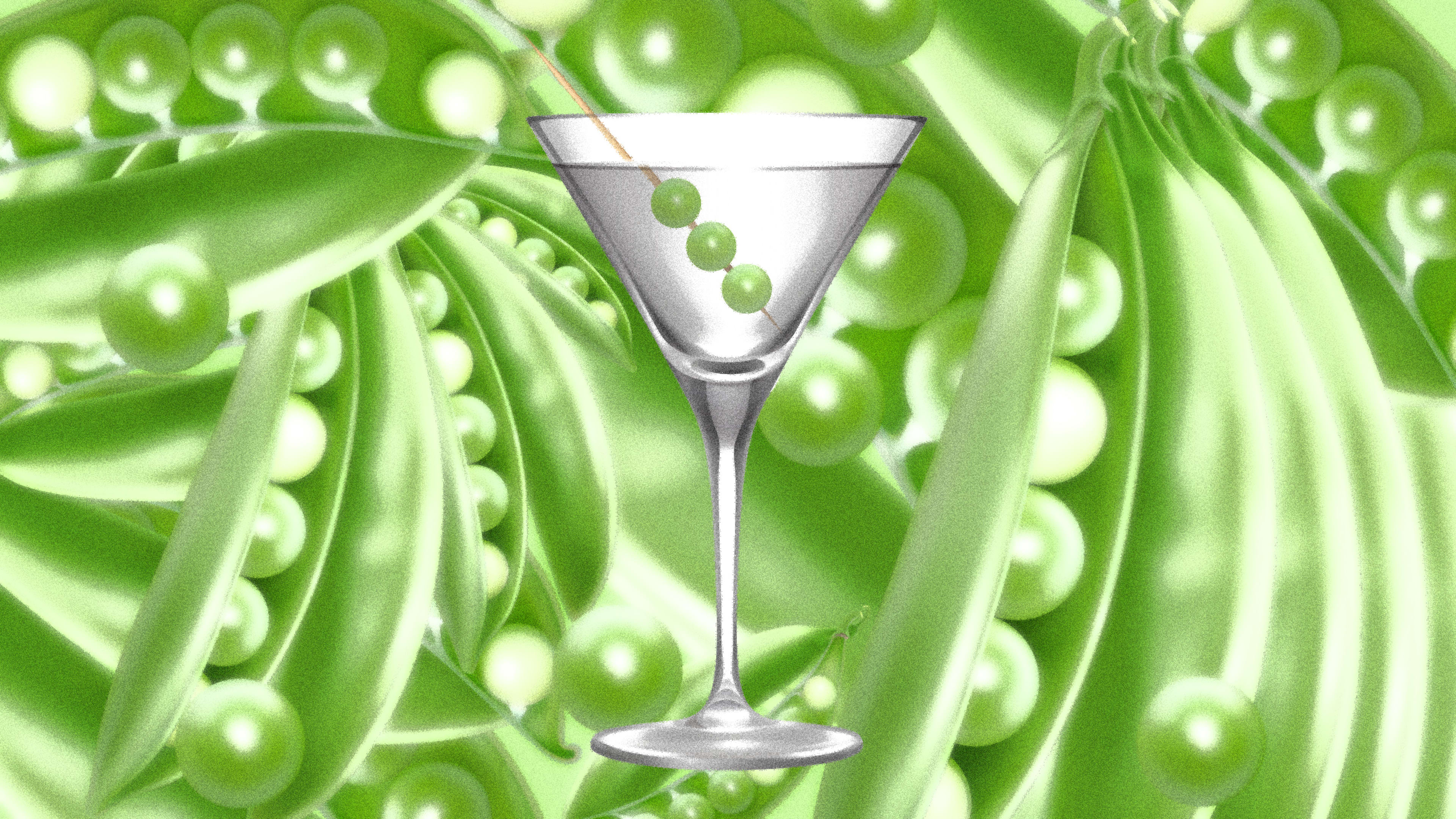First came milk made from peas and pea-based meat like the Beyond Burger. Now researchers suggest that there are reasons to also make booze from peas: A new study that looked at making gin from fermented peas instead of wheat found that it had a far smaller environmental footprint. If the byproduct from production is used in animal feed, pea gin can even help avoid rainforest deforestation, making it better than carbon neutral.
For the environment, the key benefit of peas as a crop is the fact that they can fix nitrogen directly from the air. “This means that unlike cereal crops such as wheat, they do not require the manufacture and application of fertilizer nitrogen, which uses a lot of energy and ‘leaks’ a lot of reactive nitrogen to the environment, causing air and water pollution and climate change,” says David Styles, a lecturer in life cycle assessment at Bangor University in Wales and one of the authors of the paper. Gin is often made from wheat, which typically uses more than 300 pounds of fertilizer per hectare.
Peas also contain more protein than wheat, and after the distillation process, the protein-rich byproduct can be used in animal feed. So can the hulls of the peas, which are removed before fermentation. Right now, Europe imports huge quantities of soybeans to serve the same purpose—more than 18 million metric tons in 2018—some of which comes from places like Brazil, where soybean cultivation is a reason that rainforests are being lost. The researchers calculated that substituting the byproduct for soybeans could fully offset the rest of the carbon footprint of making gin, including bottling it. Growing peas instead of wheat has a lower footprint across 12 of 14 environmental categories.
The change in ingredients shouldn’t affect the taste; one of the researchers also works at a Scottish distillery, Arbikie, that has tested the use of peas. “Kirsty Black, manager of the Arbikie distillery, is confident that the gin made from pea starch tastes the same as gin made from wheat starch after double distillation and infusion with botanical flavorings,” says Styles. The last two steps are the same regardless of the initial ingredient.
The researchers want to soon perform a similar study for beer. If peas or other legumes like beans were used widely in alcohol production, the researchers calculated that it could reduce global greenhouse gas emissions by 439 million metric tons of carbon dioxide equivalent—or around 6% of the total emissions from the U.S., a significant chunk. “In theory, any type of alcohol could be made from peas or other legume crops such as beans,” Styles says, “although whiskey must be produced from barley to be called ‘whiskey,’ and pea wine has yet to be proven.”
Recognize your brand’s excellence by applying to this year’s Brands That Matter Awards before the early-rate deadline, May 3.
